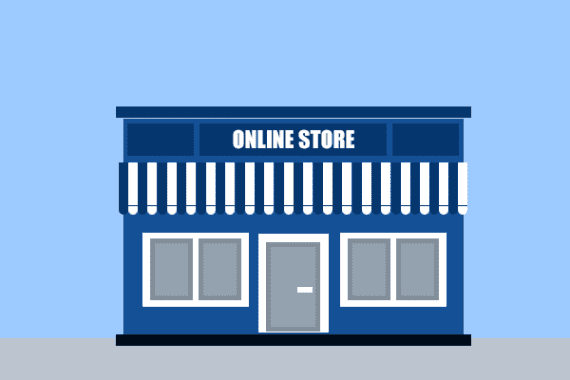
Surmising what competitors are up to could help an ecommerce business.
Knowing your competition can help your ecommerce business discover opportunities, avoid mistakes, and differentiate.
With this in mind, it can be a good idea to gather and analyze information about your competitors’ product selection, marketing, website, and operations. The aim is not to defeat your competition in some sort of retail war, but rather to learn from what your competition is doing.
One of the first steps in understanding your competitors may be to categorize them. In turn, understanding what category a retail business fits may help you to surmise it goals, strengths, and weaknesses.
There are, at least, ten broad ecommerce categories to consider.
Ecommerce Entrepreneur — Technical Guru
Entrepreneurs with technical know-how often start ecommerce businesses because they can. Some of the technical challenges that might stump or frustrate other business owners will seem like fun to a technical ecommerce entrepreneur. These entrepreneurs may be more prone to experiment and better at selecting tools and extensions.
- Goals. Acquire customers and generate profits.
- Strength. Design, features, and performance. Technical ecommerce entrepreneurs may offer exceptional sites or mobile shopping experiences.
- Weakness. Marketing, product selection, and copy.
Learning what technical, cutting-edge competitors are doing on site to convert better or provide a better customer experience can help competing companies.
Ecommerce Entrepreneur — Industry Expert
Passion for a particular activity or segment may lead some industry experts to start an ecommerce business. If you’re a semi-professional fisherman, as an example, starting an ecommerce store selling fishing gear may be a good way to fund your passion.
- Goal. Acquire customers whilst doing something they love.
- Strength. Product and industry knowledge. These stores may be superb at identifying hot products and trends early.
- Weakness. Marketing and technology.
For competing ecommerce sites, monitoring expert entrepreneurs can help find industry trends or niches.
Ecommerce Entrepreneur — Business Pro
Some, if not most, of the best ecommerce businesses solve a problem. Consumers have a need and these businesses fulfill that need. Often it is this approach that will lead a business professional to open an ecommerce store. These savvy entrepreneurs have identified an opportunity and simply need to seize it.
- Goal. Become profitable.
- Strength. Marketing, customer service, and business savvy. Don’t be surprised when these entrepreneurs use their business skills to quickly generate profits. They understand how to identify opportunities, reach potential customers, and execute to a plan.
- Weakness. Technology and industry knowledge. The may spend more to get started.
“Business pro” entrepreneurs may help identify new business models or market segments that your company can profit from.
Established Small Ecommerce Business
Ecommerce has been around in one form or another for more than 20 years. There are plenty of established, even polished, small ecommerce businesses. These online retailers have figured out what works in their industry and can be an inspiration for your ecommerce operation.
- Goals. Customer retention and profit growth.
- Strength. Experience. These business may have fine-tuned their marketing, product selection, and operations. Things just work.
- Weakness. Change. Often an established business is reluctant to change, thus it is vulnerable when the market moves.
Analyze established competitors to identify best practices for your industry segment.
Small Brick-and-mortar Retailer
In 2015, about 10 percent of U.S. retail purchases were completed online. Ignoring groceries, ecommerce moves up to about 15 percent of sales. While this is significant, it does mean that 85-to-90 percent of retail transactions probably belong to brick-and-mortar stores.
When these traditional stores move online, they are simply opening a new channel. They can rely on the success of their physical location to help them grow online.
- Goal. Increase revenue.
- Strength. Customer service, experience, and cash flow. Brick-and-mortar stores can be much better at addressing customer questions and concerns.
- Weakness. Focus. Sometimes small brick-and-mortar retailers know that they need an ecommerce presence, but lack the resources to really focus on it and make it a success.
Learn how brick-and-mortar retailers market locally. Often these companies understand how to reach a local audience, which can be important for ecommerce businesses, too.
Mid-sized Multi-channel Retailer
Similar to their smaller cousins, mid-sized retailers selling in physical stores and online can use their brick-and-mortar success to fuel ecommerce growth. They are able to offer click-and-collect services, maintain in-house call centers, and ship from multiple warehouses.
- Goals. Increase profits and expand a territory.
- Strength. Customer service, experience, and cash flow. They have the resources to add features and services.
- Weakness. Focus.
Mid-sized retailers close out failing products quickly. Watching what they discount can help identify product lines to avoid.
Niche Master
Niche masters are experts in a particular product or segment. They are among the go-to sites for their category. These niche businesses often deal in products that other sites don’t carry.
- Goal. Profitability.
- Strength. Focus. There is no doubt what these retailers offer. They are specialists.
- Weakness. Small market.
Niche retailers go deep. Identifying their best sellers may help you find products to dabble in.
Enterprise Omnichannel Retailer
Large national retail chains selling online and in physical stores benefit from brand recognition, multiple locations, and national and local advertising. These companies have millions of dollars to invest in ecommerce platforms, digital marketing, and similar.
When you think of this class of retailer, imagine Walmart and Target.
- Goals. Growth and profit.
- Strength. Resources. These businesses can apply significant amounts of money and capabilities to nearly any problem.
- Weakness. Details. When you manage a large business, it is possible to overlook some things.
To help your ecommerce business, look for long-tail products that enterprise, omnichannel retailers are not offering.
Enterprise Ecommerce Retailer
Amazon is the prime (pun intended) example of an enterprise ecommerce retailer. This class of ecommerce business sells ten of thousands of products, often has superb logistics operations, and is able to offer both low prices and very good customer service.
- Goal. Growth. Amazon, as example, may be more interested in growth than profits.
- Strength. Logistics, breadth of product offering, resources, and customer service.
- Weakness. Niche markets.
Merchants that compete with enterprise ecommerce retailers can often utilize the on-site marketplaces of those retailers and identify niche markets that the retailers are not serving.
Product Manufacturers
Unfortunately, some product manufacturers, like Danner, Carhartt, and many others, have decided to compete with retailers both online and at physical stores. These branded outlets have significant advantages when it comes to selling their products directly to customers.
- Goals. Increase profit and undercut retailers.
- Strength. They own their branded products.
- Weakness. Product selection.
Most branded stores sell at their suggested retail price. When they do put items on sale, other retailers can typically match or beat those prices.




